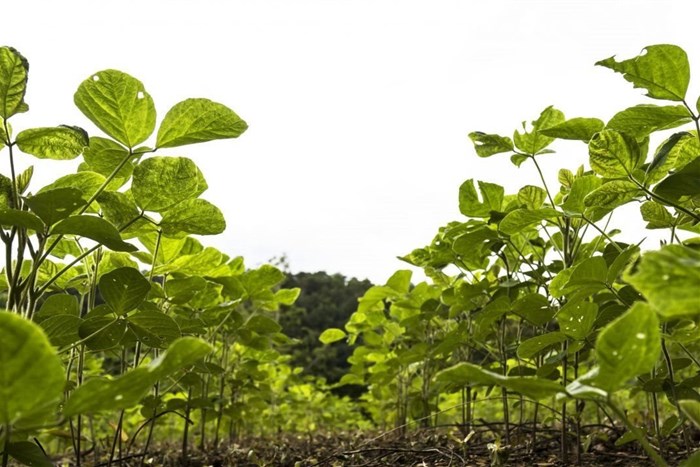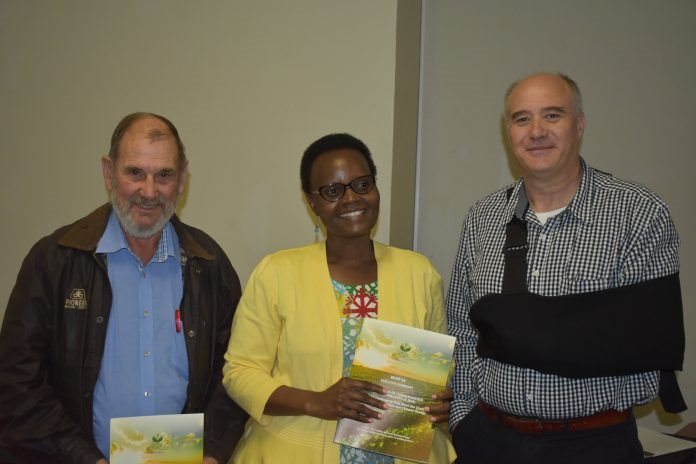
Top stories






More news














According to this report, the country’s average biotech crop adoption rose from 93% in 2017 to 96% in 2018, sustaining its ranking among the top ten biotech crop countries over the last two decades.
The Hans Lombard memorial information session on the status of GM and biotech crops in South Africa is an annual press conference organised by the Agricultural Biotech Industry (ABI) Forum. Through this conference, the South African seed industry aims to inform and educate the public about the benefits of biotechnology, allay fears and introduce new technology.

Dr Margaret Karembu, director of ISAAA AfriCenter, presented the global biotech figures while Rodney Bell, CEO CropLife SA, informed the audience of the status in South Africa.
Brief 54 shows that South Africa has completed 21 years of successful commercialisation of biotech crops with a total of 2,74 million hectares planted to three principal biotech crops: cotton, maize, and soya beans. Most farmers in South Africa have adopted biotech crops with adoption percentages of 87% for biotech maize, 95% for biotech soya beans and 100% for biotech cotton, says the report.
It further shows that the area planted to biotech cotton increased to 42 654ha in 2018 from 37 406ha in 2017, representing a 14% increase. However, the combined area planted to maize, soya beans and cotton was 3,073 million hectares, a slight decrease from the 2017/18 planting of 3,1 million hectares. The decline was a result of maize and soya bean plantings.
According to the report, a total of 70 countries adopted biotech crops through cultivation and importation in 2018, the 23rd year of continuous biotech crop adoption. Twenty-six countries (21 developing and five industrialised countries) planted 191,7 million hectares of biotech crops, adding 1,9 million hectares to the record of plantings in 2017.
Africa continues to make steady progress in the adoption of biotech crops with Nigeria becoming the first country in the world to approve biotech cowpea, thus adding a new biotech crop to the global biotech basket.
The Kingdom of Eswatini (formerly Swaziland) joined South Africa and Sudan in planting biotech crops in Africa, with commercial planting of insect-resistant biotech cotton on an initial launch of 250ha. This planting brought the number of African countries currently growing biotech crops to three. Nigeria, Ethiopia, Kenya and Malawi granted approvals for planting biotech cotton as proof that Africa is ready for biotech crop adoption.
"The world is in a technological advancement trajectory. The green revolution that had taken the world by storm in the second half of the 20th century is quickly transitioning into gene revolution," says Dr Margaret Karembu. "Plant breeding is evolving and progressing into genome editing, a more precise and accurate technology to effectively develop more productive, highly nutritious and climate-resilient crops for our rapidly increasing population."
The continuous adoption of biotech crops by farmers worldwide indicates that biotech crops continue to help meet global challenges of hunger, malnutrition and climate change.
In 2018, it was reported in the United Nations’ State of Food Security and Nutrition in the World that hunger had been growing year after year for three consecutive years, and at levels equivalent to the records of a decade ago. Furthermore, the Global Report on Food Crises 2017 revealed that hunger and malnutrition continue to rise, with around 108 million individuals in 48 countries at risk of or in the grips of severe food insecurity.
Biotech crops, developed with improved traits such as increased yield, better pest resistance and enhanced nutrition are undeniably necessary to address these global challenges that affect the lives of so many families globally.
"GM technology has contributed to all facets of food security. By increasing yields and reducing losses, it has contributed to food availability for more families. By enabling farmers to improve their processes and join the modern supply chain, it has improved physical access to food. Through raising farmer and rural incomes, it has improved economic access to food. Through rigorous standards of food safety and hygiene programmes, it has contributed to better food utilisation," says Dr Paul Teng, ISAAA board chair.
"While agricultural biotechnology is not the only key in enhancing global food security, it is an important scientific tool in the multi-disciplinary toolkit," he adds.
Biotech crop plantings have increased 113-fold since 1996, with an accumulated area of 2,5 billion hectares, showing that biotechnology is the fastest-adopted crop technology in the world. To address the specific needs and requirements of producers and consumers, several diverse biotech crops with various traits became available in 2018.
• Potatoes with non-bruising, non-browning, reduced acrylamide and late blight-resistant traits.
• Insect-resistant and drought-tolerant sugarcane.
• Non-browning apples.
• High oleic acid canola and safflower.
In countries with long years of high adoption, particularly the United States, Brazil, Argentina, Canada and India, adoption rates of major crops are at levels close to 100%, indicating that farmers favour biotechnology over the conventional varieties.

AgriOrbit is a product of Centurion-based agricultural magazine publisher Plaas Media. Plaas Media is an independent agricultural media house. It is the only South African agricultural media house to offer a true 360-degree media offering to role-players in agriculture. Its entire portfolio is based on sound content of a scientific and semi-scientific nature.
Go to: http://agriorbit.com/